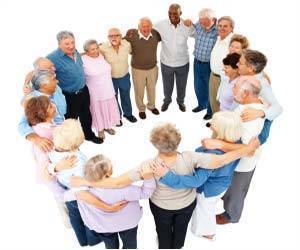
In two consecutive studies, using behavioral measures and functional magnetic resonance imaging (fMRI), the authors show that the experience of vicarious embarrassment is linked to empathy and neural activations in brain areas constituting the affective component of the pain matrix: the anterior cingulate cortex and the left anterior insula.
The authors generated four kinds of everyday life situations eliciting vicarious embarrassment. Observing a protagonist who is aware about his or her inappropriate condition (e.g. tripping, as "America's Next Top Model") or unaware (e.g. wearing a T-shirt with an imprint that comments on one's sexual capabilities) resulted in comparable activations in core regions of the pain matrix.
Moreover, the level of activation in these brain regions positively correlated with the degree to which the observers described themselves as empathic.
According to the researchers, their findings may be due to the fact that sharing another person's state is influenced by the additional information that is exclusively accessible to the observers in a social situation.
The present results thus complement the conventional view on empathy and suggest a distinction of forms of empathy: one which is more or less a co-experience of another's feeling state, and another one which rather reflects the observer's own evaluation of the situation in the social context.
Advertisement
"Lastly, it depends on the observers to conclude what is inappropriate in the specific social context or not. Among all these involved processes, however, we believe it is the tendency to represent another's situation that could mediate the embodied experience of the social emotion," they added.
Advertisement
Source-ANI









